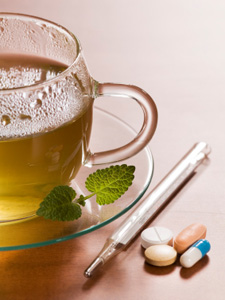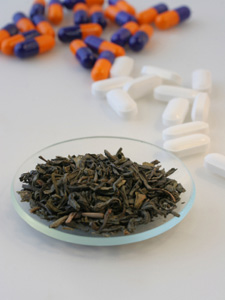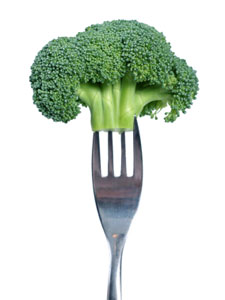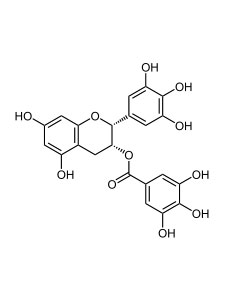Tea: The cure for what ails




"Quackery" is a derogatory term used to describe the promotion of unproven or fraudulent medical practices (wikipedia). Quackery is nothing new. The Pure Food and Drug Act of 1906 prohibited the use of the word "cure" on medicine bottles, and paved the way for the eventual creation of the Food and Drug Administration (FDA). Antique collectors have identified over two thousand unique bottles embossed with the word "cure".
Today, the outlandish claims are just as prevalent; we've just become more adept at the use of legal disclaimers:
- "The following are the possible health benefits of green tea... decreases the risk for heart attacks, stroke, and cancer..."
- "The powerful antioxidants found in tea are believed to help prevent cancer [and] lower cholesterol..."
- "My girlfriend was on prescription allergy meds her entire life until she started drinking two cups of Rooibos per day. Now she's allergy free!"
OK, so not everyone in the tea business has become adept at legalese. :) The first two statements were excerpts from FDA Warning Letters sent to Ten Ren and Rishi Teas earlier this year. The last claim was told to me by a Teavana employee after I expressed horror at his offer to put a shot of Rooibos in my cup of Gyokuro for "antioxidant boost".
There's not much question that the widely publicized research findings on the potential health benefits of tea have been a driving factor in the increased awareness and increased consumption of tea in the US. I'm not suggesting that most people drink tea for health, but I do believe that a good percentage of the consumers who have tried tea (or loose tea) for the first time in the past decade have been influenced and intrigued by all the buzz.
The obvious question for those of us in the tea industry, is how do we respond to the daily barrage of customer questions regarding tea and health? Most industry insiders take one of three approaches:
- 1) Feed into the hype and encourage (even if tacitly) the customer's hope for a cure.
- 2) Attempt to educate the customer on the realities of tea and health, including the fact that all teas come from the same plant, have many of the same ingredients, etc.
- 3) Refuse to discuss the health benefits of tea and insist on selling by flavor and quality alone.
The first approach may be great for short term sales, but is unlikely to yield long-term loyal customers and certainly doesn't establish you as a credible retailer. The second approach is a great way to confuse and confound a customer who wasn't looking for a science lesson and just wanted to know which of the myriad of green teas they should drink today. The third approach ignores the opportunity (and customer expectation) to play the role of "trusted adviser and tea expert". Sticking our heads in the sand and sending customers to fend for themselves on Google or, worse yet, into the arms of another retailer who will tell them whatever it takes to get the sale, is not appealing.
At Adagio we've laid out a defined, concise and effective strategy for capitalizing on the craze, educating the customer, and building long term credibility and customer loyalty. (I've seen so few retailers handle these questions well, and this approach is so simple and effective I feel like I should be charging for this.) It goes something like this:
CUSTOMER: "Which tea should I drink if I want to lose weight?" (This is a ridiculously common question)
TEA CONSULTANT: "I'd recommend our WuYi Ensemble, a famous tea from the WuYi mountains of China. [Show the tea!] Oolong teas, like this one, are most often studied and marketed specifically for weight loss. What do you think of this tea? Would you like me to wrap it up for you?
[Continue] The truth is, many of the same components found in Oolongs are also found in other teas, since they come from the same plant. Let me show you a couple of my favorites/best sellers."
The goal in this response is to accomplish three things: First, we answer every question with a product recommendation. Many customers are not interested in the detail and just want some way to narrow down a 200 tea collection and figure out a place to start. Second, we speak the customer's language and make it clear that we are familiar with what they've read/heard/seen about Oolong and weight loss. It's all over the place, so pretending it doesn't exist just makes us look uninformed. Third, after answering a simple question with a simple answer and establishing credibility, we provide some context and education. We've told the customer that the hype and marketing is mainly hype and marketing, and turned the conversation back to the wide world of tea.
Most customers aren't interested in an answer that is longer than a sentence or two. For those who do want more information, the staff MUST be extremely knowledgeable and well-trained. So here's WHY the researchers and marketers are connecting Oolongs with weight loss:
"Until someone does a comprehensive study of people actually drinking tea, we can't be certain that tea will lead to weight loss, but these are the reasons people are focusing on tea:
1. Traditionally, Oolongs are enjoyed after heavy, fatty meals in China. This was one of the original reasons for the research.
2. Oolong teas, and tea in general, include components that impact the way fat is stored in the body.
3. All caffeinated drinks increase your metabolic rate because caffeine is a stimulant."
For all you legalistic types out there who are screaming that I've crossed all sorts of lines in stating the obvious above, here's an excerpt from the USDA website: "...we can't actually say that [tea] makes people lose weight. What we can say is that it raises metabolic rates and increases fat oxidation rates. Those are two things that are predictive of weight loss." (link)
This article is not the place to get into the nuance of the wording and the science. The point is that, so long as the news media, pop-culture personalities, and unethical marketers provide the American Consumer with a steady stream of incredible claims, it is our RESPONSIBILITY to the customer to guide and educate. We help no-one - including ourselves - by refusing to discuss the elephant in the room or by answering simple questions with a string of scientific statements and legal disclaimers.
Most customers do not really expect tea to be a miracle cure, any more than they expect whole foods (brown rice, broccoli, etc.) to be a miracle cure. They do, however, believe that tea, like whole foods, is a potentially valuable part of a healthy diet. They're looking for some direction on where to begin, and just a touch of information on what it is about tea that makes it such a focus of health talk.
The truth is that the majority of health questions can be answered with a simple statement like this one: "Most of the focus on tea and health comes down to antioxidants, which are being studied for all sorts of benefits. The teas in our collection with the most antioxidants are..." That statement claims nothing, but tells the customer EXACTLY what they wanted to hear. And as an aside, it will help you close the sale!
Adagio Teas
Twitter: @AdagioRetail

